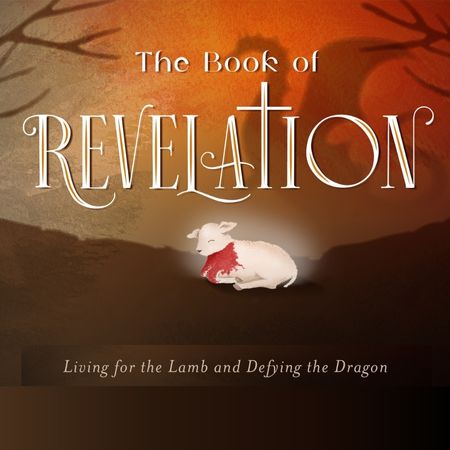This church’s sad situation is dire. They are dead and we will see from the text the nature of the apparent self-inflicted wounds that have brought them to this point. Jesus declares that their works are not done. There must never come a point when we retire in the Christian life. If our devotion to Jesus is only ever talked about in the past tense, that’s a problem. This church is called to “think back” on what they had received and heard. To whatever degree, they had forgotten the Good News. We also see they are living a way of life influenced and sullied by the culture rather than being cleansed by Christ. Let’s not commit ourselves to the ways of the world and instead commit to the ways of the word.
Sermons on Gospel
In chapter 1 Paul talked about this church being “imitators” of him and his ministry companions (which is a theme he will revisit later in chapter 2). In between these discussions of imitation is a call to recall how Paul, Silas and Timothy were while they were in their midst. This all ties together because if this church or any church sought to take seriously the instruction to imitate, they must be shown what it is they ought to be imitating. Paul does a wonderful job of doing just that here, while ever encouraging his readers to remain fixed on Jesus.
As a family rooted in the Gospel there will be times we have to root out rebellion to the Gospel. Paul gives sound and clear and hard guidance on how a church does this and what must be present in a Gospel Rooting family to root out rebellion. Church leaders must be contending for the faith and concerned for the family. As well as church members must also cling to the faith and conform to faithfulness.
Paul instructs Timothy to establish elders and leadership in the various Cretan churches that they had planted together. In his explanation of what the character of an elder ought to be, he demonstrates that this the life that the believer should aspire to. In many ways, there is nothing overly special about the list, but in contrast to the living of the culture, this stands out as radical or bold. Again the emphasis for living an Gospel-centered life does not come from the command itself (legalism) but from the grace of God given to us in Jesus.
As Paul opens his letter to Titus and the Cretan church, Paul reminds Titus that the Gospel of Jesus was not something that happened as a response to sin as if God didn’t know that it was going to happen. Instead it was his plan to pour out his grace on us to give us hope and demonstrate his love for us. The grace of God in Jesus is a recurring theme. The emphasis becomes on the connection between grace and action. Such is the overwhelming nature of God’s grace that we are to respond to his grace wholeheartedly and without reservation.
(Luke 23:25-24:12)
God reveals himself to all people in all different ways so that they might meet Jesus. We often tell the story of the Three Kings, or the Magi, as this side story to the coming of Christ. The deeper truth in this is that Jesus wasn’t only sent for the Jewish people, he was sent for all people. As we look deeper into the lives of the Magi, we come face to face with the Gospel truth that we are called to take the Gospel to places where it is not so that other might know Jesus.
We believe in taking faith-filled, big thinking risks. Our God is bigger and more powerful than we can dream. God calls us to trust Him even when the outcomes aren’t clear. We forge ahead in obedience and boldness.
We believe creativity is a natural result of worship. The Gospel motivates us to creatively worship Jesus with all of our talents and artistry. If you keep doing what you’ve been doing you will keep getting what you’ve been getting. Creativity is mixture of gifting, intentionality, and fearlessness. We must use and develop our gifts for the glory of God.
We believe in a “go” mentality. We will always strive to go to others, before we invite them to come to us. The Gospel compels us to initiate relationships with others so that they might see the Gospel. We must care about loving and reaching people with the Gospel then church participation.







